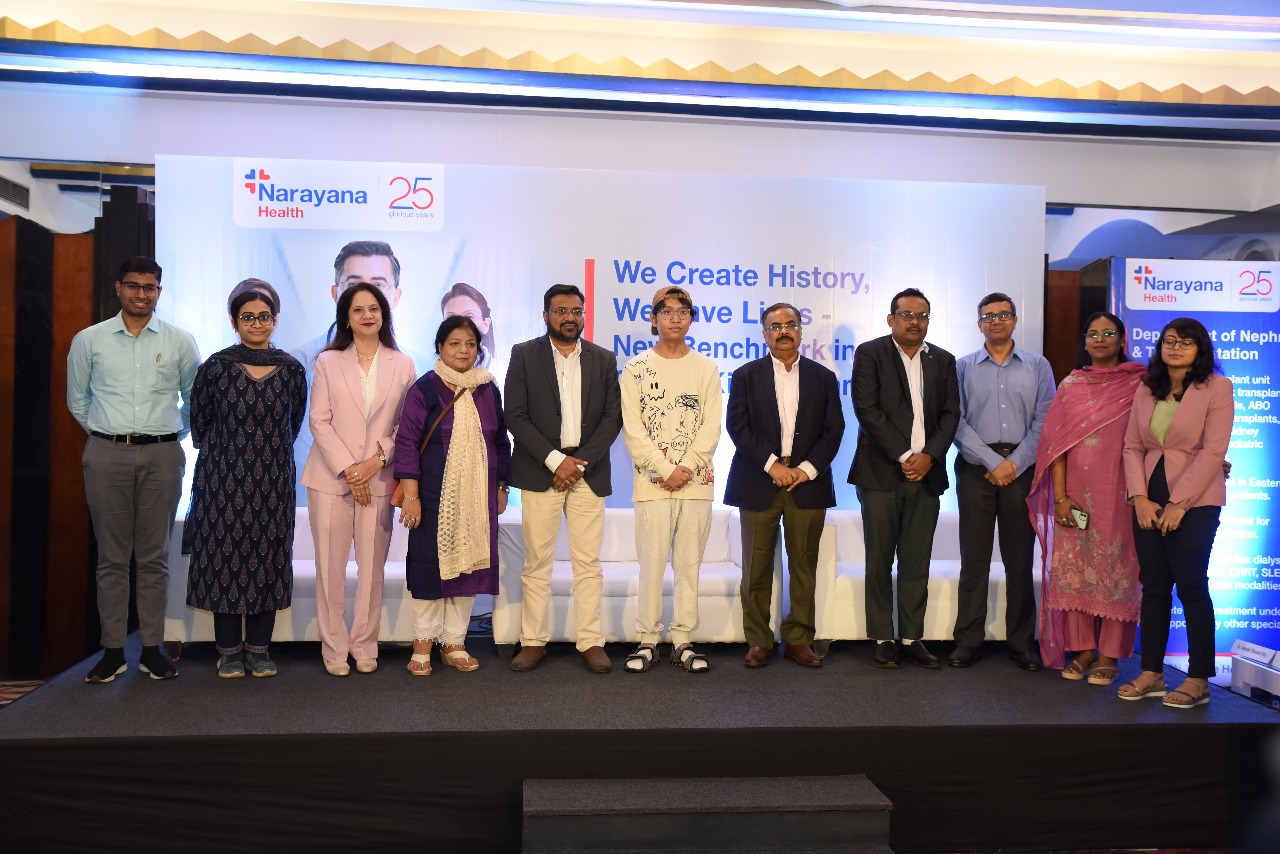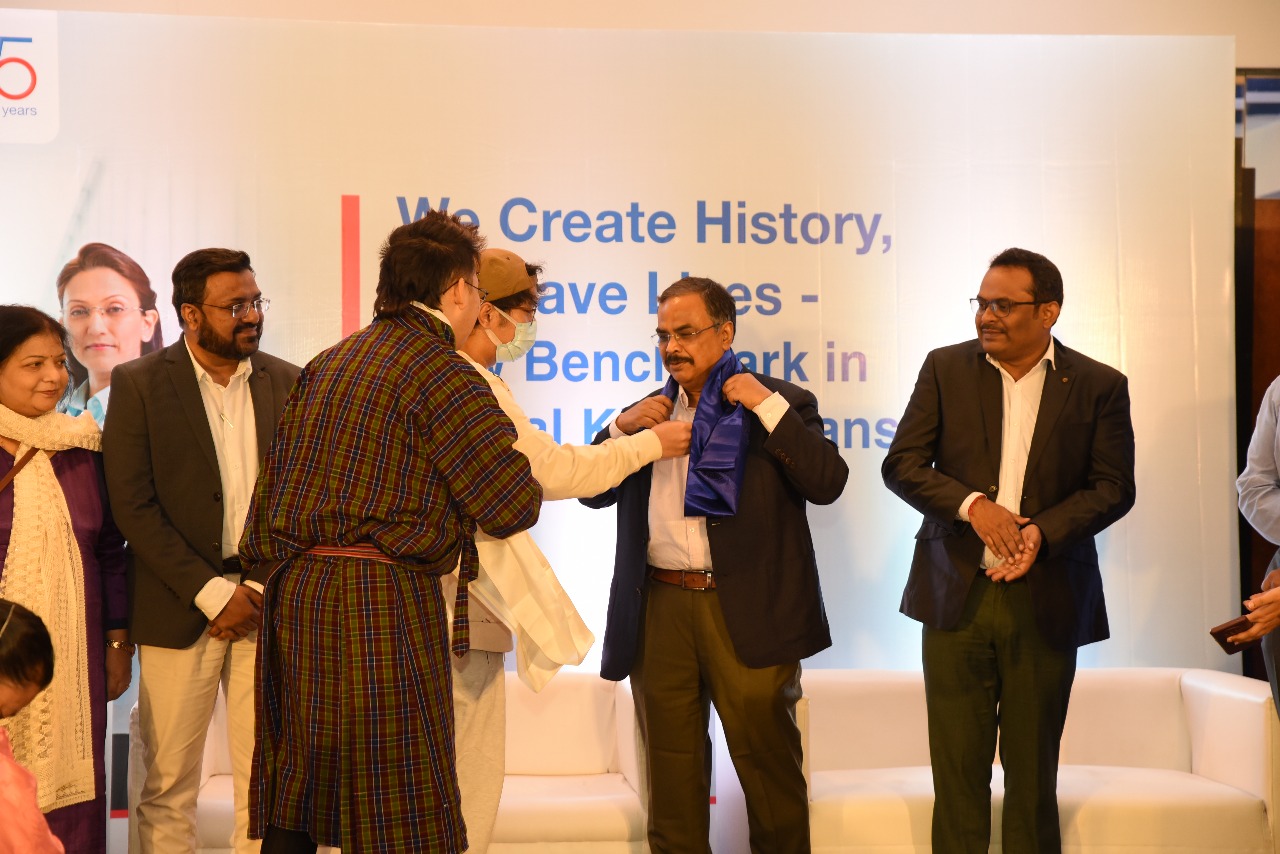Narayana RN Tagore Hospital Performs World’s First Kidney Transplant of Its Kind
A father donates a kidney to his son despite being a carrier of the same rare gene; a first-of-its-kind transplant globally
Kolkata, 26 November 2025: In a landmark medical achievement, doctors at Narayana RN Tagore Hospital, Mukundapur, have successfully performed a rare of the rarest kidney transplant on a young man from Bhutan suffering from Factor VII deficiency, one of the world’s rarest genetic bleeding disorders, affecting just one in five million people. This marks the first such successful transplant of its kind in the world to date, underscoring Narayana Health’s leadership in managing complex and high-risk medical conditions.

With no compatible donors except his father, who was also a carrier of the same genetic defect, the team faced an extraordinary ethical and medical challenge. After extensive multidisciplinary discussions and risk assessments, the transplant was approved and executed with extreme precision. With a donor carrying the same genetic abnormality as the recipient, this became the first kidney transplant of its kind ever performed in the world, marking a major milestone in medical history.
Speaking about the complexity of the case, Dr. Deepak Shankar Ray, Consultant & Chief Nephrologist (Renal Transplant Programme), Narayana RN Tagore Hospital, Mukundapur, said, “This case tested the very limits of medical coordination and surgical discipline. We were performing a kidney transplant on a patient who could have lost his life to even minor bleeding. Every step, from anaesthesia to suturing, had to be choreographed in sync with real-time clotting parameters. The success of this surgery is a testament to teamwork, meticulous planning, and the family’s unshakable trust. We received invaluable support from our multidisciplinary team of doctors, whose expertise played a crucial role in the successful completion of the procedure and in saving the life of this young boy. We especially acknowledge the contributions of Dr. Tarshid Ali Jahangir from the Surgical Team, and Dr. Titisa Sarkar Mitra from the Anaesthesiology Team.”
Elaborating on the rare bleeding disorder, Dr. Sisir Kumar Patra, Consultant- Haematology, Narayana RN Tagore Hospital, Mukundapur, shared, “Severe Factor VII deficiency is so rare that only one in about fifty lakh people worldwide have it. Managing such a case requires a delicate balance; too little Factor VII could cause fatal bleeding, while too much could trigger dangerous clots. We had to maintain the narrowest possible margin of safety, minute by minute, through the surgery and beyond. It is immensely satisfying to see both the patient and his father doing well.”

The post-operative journey was not without challenges. The patient briefly developed paralysis due to a small clot but recovered fully with careful management under the joint guidance of nephrology, neurology, and haematology teams. His creatinine levels are now stable, and he is leading a healthy life post-transplant.
Expressing his pride in the team’s accomplishment, Mr. Abhijit C.P., Director & Cluster Head- Kolkata and Corporate Growth Initiative- Narayana Health, East, said, “Our doctors didn’t just perform a rare surgery; it was the a severe & rarest of the rare case. They gave a young man a new lease on life while ensuring his father’s safety. Such achievements place Eastern India firmly on the global map of advanced clinical expertise.”
Adding to this, Mr. R. Venkatesh, Group COO, Narayana Health, stated, “Narayana Health has always believed in pushing the boundaries of what is medically possible while maintaining the highest ethical standards. This successful transplant reflects our commitment to multidisciplinary collaboration, international best practices, and compassionate care that transcends borders. We are immensely proud of our team and grateful to the family for their trust.”
The case has already garnered considerable interest among medical professionals in India and abroad due to its clinical significance and the ethical complexities it presents.
